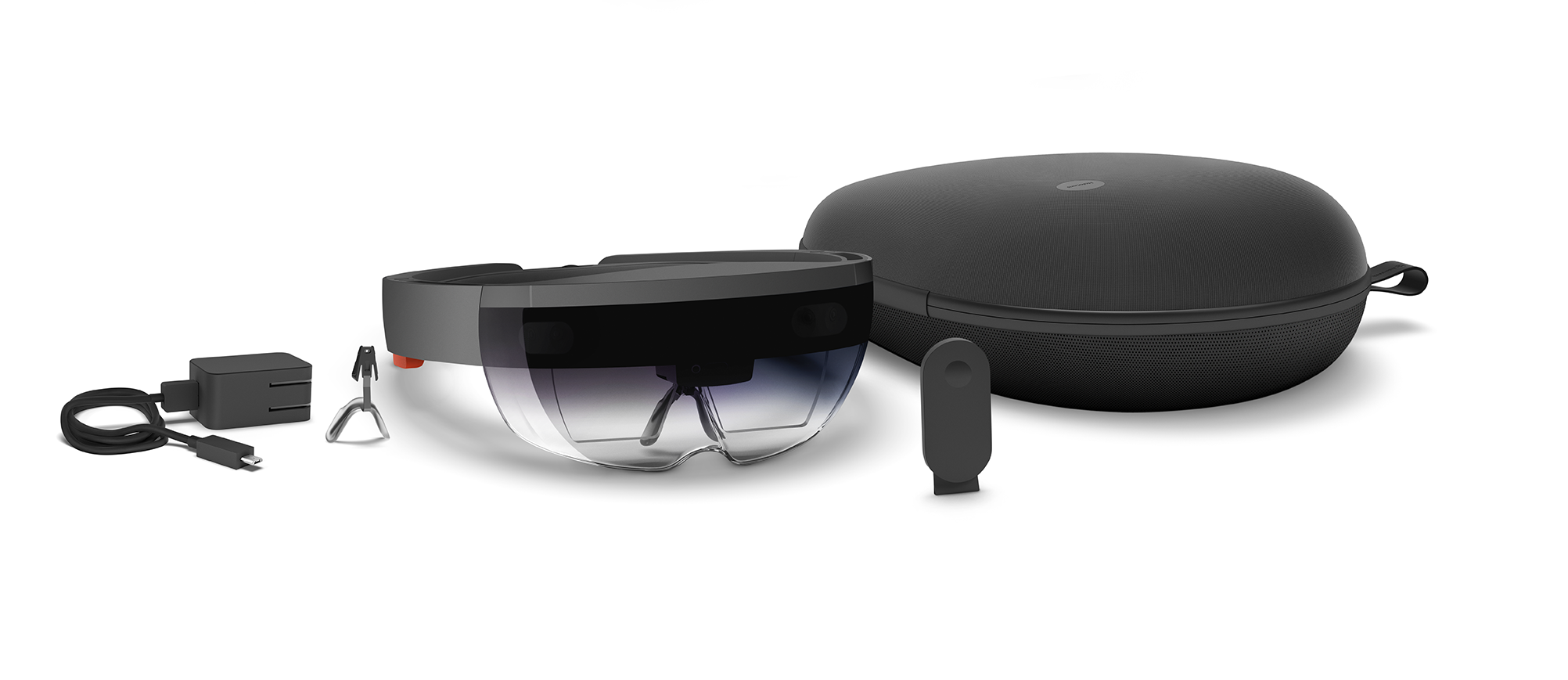A developer version of Microsoft’s Hololens augmented reality headset will begin shipping on March 30 for $3,000 USD.
The Hololens developer kit will begin shipping around the same time Oculus launches the consumer version of its Rift VR headset.
The device has multiple environment understanding sensors and runs on a custom-built Microsoft Holographic Processing Unit (HPU) and an Intel 32-bit architecture. The HPU is custom silicon which allows HoloLens to understand gestures and gaze while mapping the outside world in real time.
The headset has holographic lenses which feature ‘an advanced optical projection system’ capable of generating multi-dimensional full-color holograms, allowing the user to see holographic objects around them.

Microsoft said: “The key to a great holographic experience is holograms that are light point rich, i.e., they have a high holographic density and are pinned, or anchored, to the world around you. To achieve this, HoloLens has been designed for optimal holographic density of 2.5K radiants. The more radiants and light points there are, the brighter and richer the holograms become.”
The headset also has built-in cameras which allow users to record mixed reality captures (MRC) — HD pictures and video of the holograms around them.
The Hololens supports Bluetooth 4.1, helping enable accessories such as the “clicker” – a miniature navigation device that attaches to a user’s fingers via an elastic strap.
Get details on what comes with the #HoloLens Development Edition: https://t.co/minOpQBg6K pic.twitter.com/yRlO3N1ejK
— Microsoft HoloLens (@HoloLens) February 29, 2016
Microsoft isn’t handing out dev versions of the Hololens to anyone though; there is an application process for those in the Windows Insider program in the US and Canada.
“The more you share in your application form, the easier it will be for us to see how you’ll help build the future of holographic computing with us, one inspired app at a time,” Microsoft says.
Developers now have access to documentation, and to the developer community, which Microsoft hopes will help them “create amazing experiences”.
Microsoft said that developers who purchase HoloLens will have “immediate access to hundreds of UWP apps through the Windows Store”, such as OneDrive, Maps, Remote Desktop, People, Movies & TV, Groove Music and Microsoft Office apps.
“Additional development tools that include Visual Studio projects and a HoloLens emulator will be released when HoloLens devices start shipping to customers on March 30. The emulator will allow developers to test holographic apps on their PC without a physical HoloLens and comes with a HoloLens development toolset – to help developers who haven’t yet received their devices get started right away.”
Augmented reality refers to technology that gives users information about things they are looking at. Virtual reality, on the other hand, creates simulations, pretend places, or virtual environments we can enter. We can interact and do things in those pretend places.
